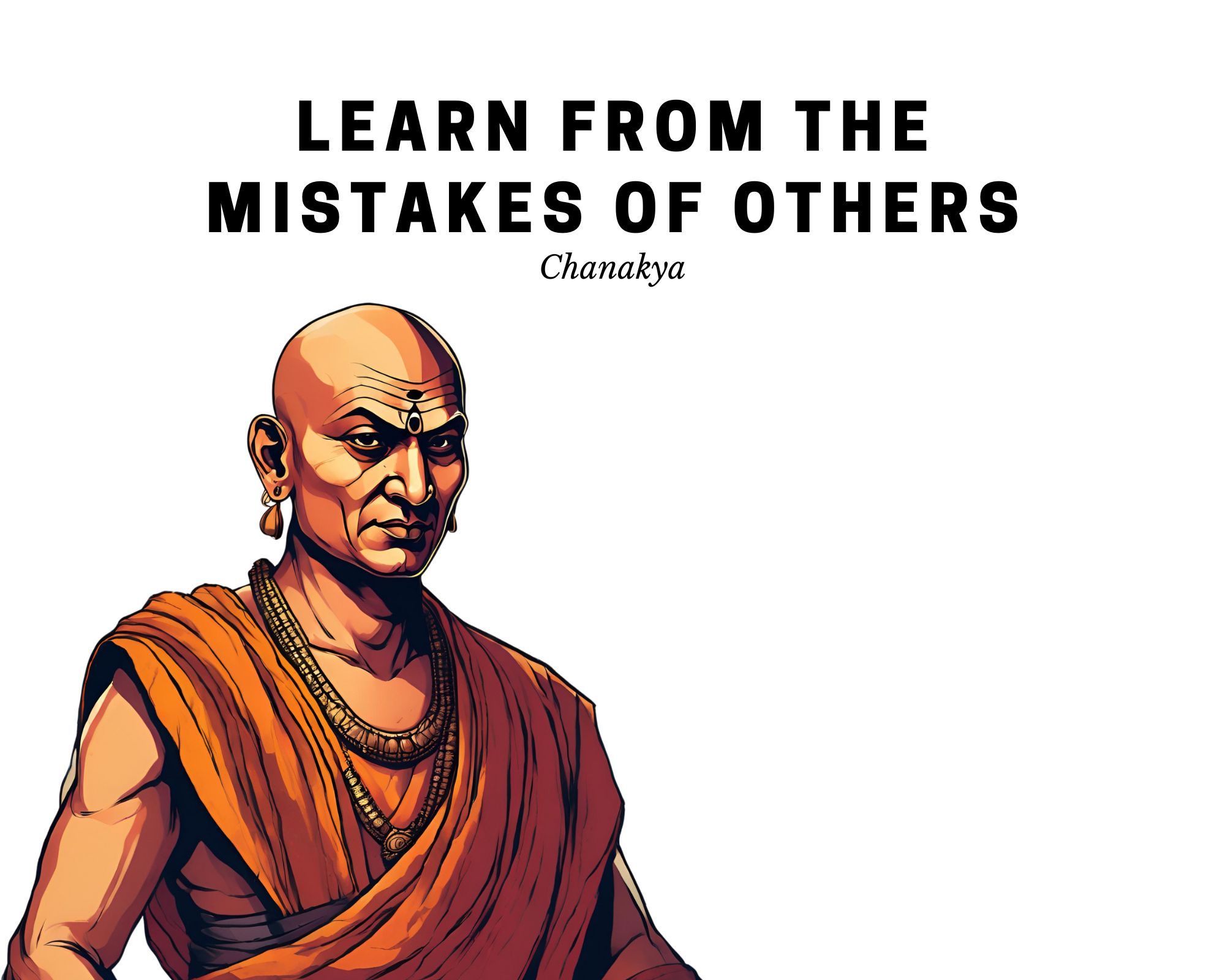Chanakya’s Golden Rules: 10 Quotes That Inspire Success and Leadership

Chanakya, also known as Kautilya or Vishnugupta, was a brilliant strategist, philosopher, economist, and political thinker of ancient India. Revered as the author of the Arthashastra, an ancient Indian treatise on statecraft, economic policy, and military strategy, Chanakya played a pivotal role in shaping the Mauryan Empire and mentoring Chandragupta Maurya, its founder. His ideas and principles remain relevant today, offering timeless wisdom for leadership, governance, and personal development. This article delves into Chanakya's life, legacy, and ten famous quotes that encapsulate his wisdom.
The Life and Legacy of Chanakya
Born in 375 BCE in Taxila (present-day Pakistan), Chanakya was a Brahmin scholar with unparalleled expertise in economics, politics, and diplomacy. He served as an advisor and guide to Chandragupta Maurya, helping the young king overthrow the Nanda dynasty and establish the Mauryan Empire.
Chanakya's treatise, the Arthashastra, is a masterpiece that provides insights into governance, administration, and strategy. His teachings emphasize pragmatism, ethics, and the balance between personal ambition and collective welfare. Chanakya’s legacy has transcended centuries, influencing thinkers, leaders, and policymakers across the globe.
10 Famous Quotes by Chanakya and Their Relevance Today
Chanakya's wisdom is immortalized in his quotes, which serve as guiding principles for individuals and societies alike. Below are ten of his most famous sayings, along with their interpretations and relevance in modern life:
1. "Before you start any work, always ask yourself three questions – Why am I doing it? What might the results be? And will I be successful?"
This quote underscores the importance of foresight and planning. Chanakya believed that clarity of purpose and understanding potential outcomes are critical for success.
Relevance Today: In the fast-paced modern world, setting clear goals and evaluating risks is essential, whether in personal projects, business ventures, or career planning. This approach minimizes the likelihood of failure and ensures efforts are aligned with meaningful objectives.
2. "A person should not be too honest. Straight trees are cut first, and honest people are screwed first."
While seemingly cynical, this quote reflects Chanakya's understanding of the complexities of human interactions. Excessive honesty can make individuals vulnerable in a competitive or manipulative environment.
Relevance Today: In professional settings, balancing honesty with diplomacy is crucial. Being truthful is important, but one must also navigate the subtleties of relationships to avoid being exploited.
3. "Learn from the mistakes of others; you can’t live long enough to make them all yourself."
Chanakya highlights the value of observation and learning from the experiences of others. Wisdom doesn’t always come from personal trials; it can be gleaned from the successes and failures of others.
Relevance Today: This principle is especially useful in fields like business, technology, and education. By studying case studies, historical events, or industry trends, individuals can avoid common pitfalls and adopt best practices.
4. "The biggest guru-mantra is: Never share your secrets with anybody. It will destroy you."
Chanakya emphasizes the need for discretion and caution in sharing sensitive information. Trusting the wrong person with secrets can lead to betrayal and harm.
Relevance Today: In an age of social media and oversharing, this advice is particularly pertinent. Maintaining privacy and guarding personal or professional secrets is vital to protect one's interests and reputation.
5. "Even if a snake is not poisonous, it should pretend to be venomous."
This quote stresses the importance of perception and self-defense. Chanakya believed that projecting strength, even if not backed by real power, could deter potential threats.
Relevance Today: This idea finds relevance in personal branding, negotiations, and leadership. Projecting confidence and capability can create opportunities and ward off adversaries.
6. "As soon as the fear approaches near, attack and destroy it."
Fear can be paralyzing, but Chanakya advises a proactive approach. Facing and overcoming fears head-on leads to growth and liberation.
Relevance Today: Overcoming fear is essential in decision-making, whether it involves public speaking, taking risks, or pursuing ambitious goals. Courage leads to self-improvement and success.
7. "There is some self-interest behind every friendship. There is no friendship without self-interests. This is a bitter truth."
Chanakya's pragmatic view on relationships reveals his understanding of human nature. While it may sound harsh, it underscores the idea that relationships often have underlying motives.
Relevance Today: Recognizing the dynamics of relationships can help individuals set boundaries and maintain realistic expectations, whether in professional or personal settings.
8. "Books are as useful to a stupid person as a mirror is useful to a blind person."
Education and knowledge are valuable only when the individual is receptive and willing to apply them. Chanakya believed that wisdom requires both intellect and intent.
Relevance Today: In the information age, access to knowledge is abundant, but its utility depends on the individual’s ability to process, analyze, and act upon it.
9. "Once you start working on something, don’t be afraid of failure and don’t abandon it. People who work sincerely are the happiest."
Perseverance and dedication are at the heart of success. Chanakya urges individuals to remain committed to their endeavors despite challenges.
Relevance Today: In modern life, resilience is key to achieving long-term goals, whether in education, careers, or personal development. Hard work and persistence often lead to fulfillment and happiness.
10. "The fragrance of flowers spreads only in the direction of the wind. But the goodness of a person spreads in all directions."
This quote highlights the universal impact of virtuous actions. Goodness, kindness, and moral integrity transcend boundaries and leave a lasting impression.
Relevance Today: In a world increasingly interconnected by technology and global challenges, ethical behavior and altruism can inspire change and foster trust.
The Enduring Relevance of Chanakya’s Teachings
Chanakya’s teachings offer profound insights into human nature, governance, and personal development. His pragmatic and strategic approach to life enables individuals to navigate challenges with wisdom and foresight. From business strategies to personal relationships, his principles remain timeless, providing a framework for success and fulfillment.
Chanakya’s legacy is a testament to the power of knowledge and wisdom. His life and works continue to inspire leaders, thinkers, and individuals across the world. By reflecting on his quotes and their relevance, we can uncover valuable lessons to apply in our own lives. Whether you’re striving for success in your career, seeking to improve relationships, or aiming to lead with integrity, Chanakya’s timeless wisdom can be your guide.
